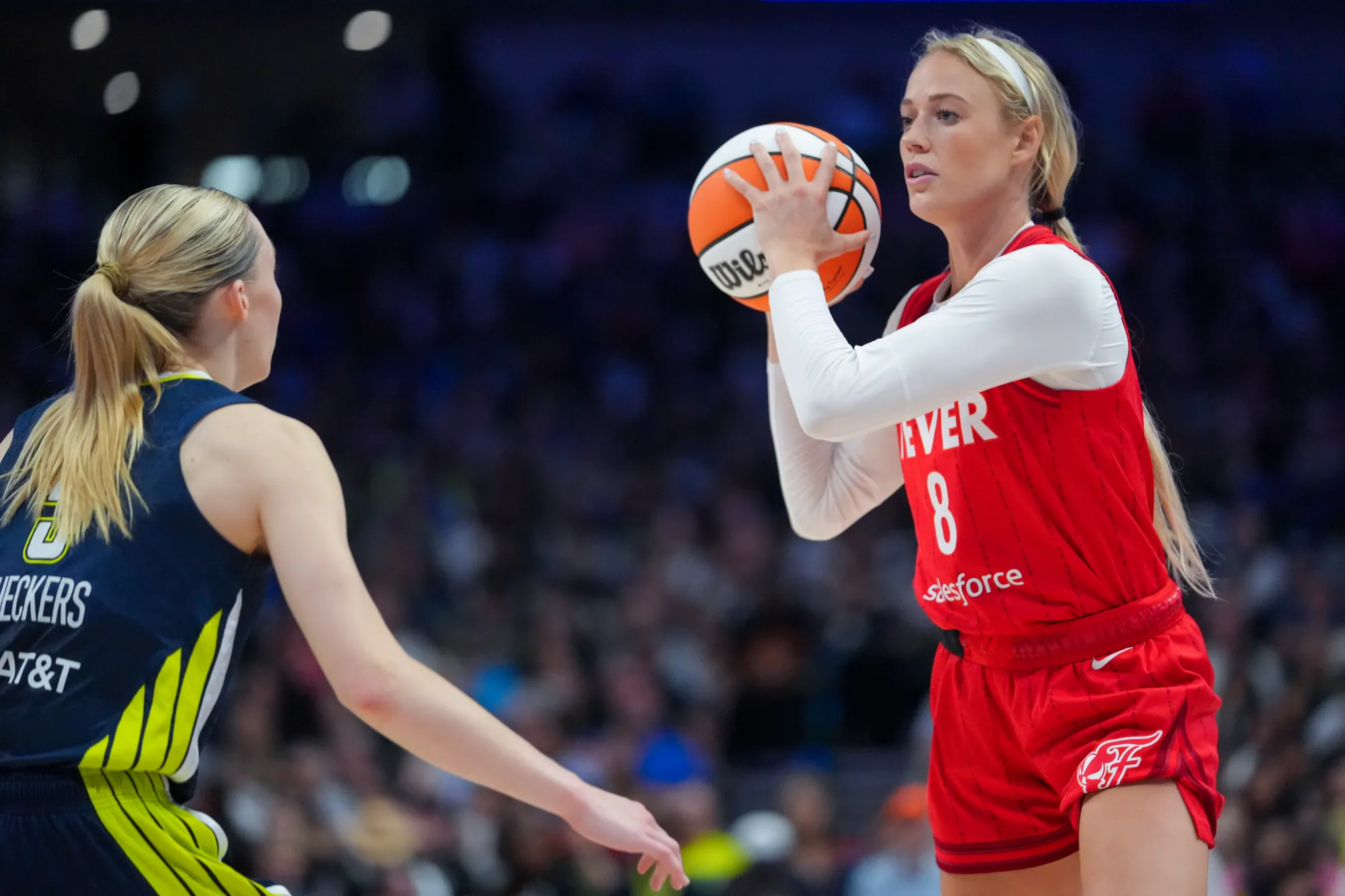Sophie Cunningham, a standout guard-forward for the Phoenix Mercury, has never been one to hold back her opinions. Known for her gritty playing style and fiery competitiveness, Cunningham has emerged not just as a key player on the court, but also as a voice that sparks conversation off of it. Recently, she stirred the pot in the WNBA landscape by questioning the league’s latest decisions on expansion cities — a move that’s garnered both praise and criticism. In a league striving for growth and deeper cultural relevance, Cunningham’s comments hit at a core tension between ambition and strategy.
The WNBA has been in a period of significant growth. With viewership increasing, media coverage expanding, and a new wave of talent taking over, the league is riding high on momentum. This surge of interest has fueled the push for expansion — something fans, players, and league executives have all called for over the years. The most recent announcement includes adding teams in San Francisco (Bay Area) and Toronto, Canada. These cities are large markets, and their inclusion is intended to further the league’s reach both nationally and internationally. However, not everyone is convinced that these were the right choices — and Cunningham is among the skeptics.
Cunningham’s concerns are rooted in several key points: market viability, fan engagement, and competitive integrity. When asked about the league’s direction during a recent interview, she expressed surprise and slight concern over some of the choices made, particularly Toronto. “I don’t know if that was the best spot,” she commented, later elaborating that expansion isn’t just about throwing a team into a big city — it’s about ensuring long-term success, support, and infrastructure.
This sparked a larger discussion across social media and sports circles. On one hand, her critics argue that her comments could be perceived as dismissive of international growth or lacking awareness of the league’s broader strategic goals. On the other hand, many athletes, analysts, and fans appreciated her candor and saw value in her raising uncomfortable questions.
Cunningham is not alone in her skepticism. Some sports business analysts have pointed out that expansion is a tricky game. The WNBA is still relatively small compared to its male counterpart, the NBA, and while growth is necessary, each new team added comes with risks. Markets like Toronto, while large and passionate about sports, are untested grounds for professional women’s basketball. While Canada has produced WNBA talent and has an enthusiastic basketball fan base, it’s unclear whether that enthusiasm will translate into ticket sales, sustained media coverage, and corporate sponsorship for a local franchise.
On the flip side, cities like Houston, Charlotte, or even Philadelphia — which have histories with the WNBA or strong women’s college basketball followings — were passed over. Critics of the expansion plan wonder why those cities weren’t prioritized. Cunningham’s questions echo those concerns, asking whether the league is expanding with a long-term plan or simply chasing new headlines.
Another layer to Cunningham’s commentary is the player perspective. Expansion doesn’t just affect markets; it affects athletes’ lives, careers, and opportunities. Roster spots in the WNBA are limited, and competition for those spots is fierce. Adding teams creates more opportunities — something that is generally celebrated by players, especially as more collegiate stars emerge and international players aim to break into the league. However, the quality of life, travel logistics, and even tax implications (especially with international teams like Toronto) can all play a role in player satisfaction and performance.
For example, American players traveling to Canada would have to deal with different visa regulations, exchange rates, and healthcare systems. While these might seem like small details to fans, they are critical considerations for players and team staff. Cunningham’s comments may reflect concerns voiced privately among players about the implications of having a team outside the U.S., especially when there are viable American cities that could house and support a franchise.
Still, it’s important to note that Cunningham is not against expansion in principle — she’s just advocating for thoughtful, sustainable growth. That kind of critical thinking should be welcome in a league that is still solidifying its foundation. Honest discussions, even uncomfortable ones, often lead to better long-term outcomes. If anything, her comments have ignited deeper interest in the expansion topic and pushed more fans to ask their own questions about the future of the WNBA.
Cunningham’s stance also highlights a broader issue that women’s sports face: the balance between growth and stability. Unlike some of the major men’s leagues, women’s sports often don’t have the luxury of failing quietly. A failed franchise or expansion misstep can have ripple effects that impact the entire league’s credibility and momentum. That’s why it’s critical for decision-makers to listen to all stakeholders — players included — when shaping the league’s direction.
The push for expansion comes amid a larger conversation about equity in sports. The WNBA has long battled for more recognition, better salaries, and improved facilities. Recent collective bargaining agreements and partnerships have made some progress, but the gap remains significant. Expansion represents one avenue to close that gap, but only if done correctly. A successful new franchise can boost media coverage, sponsorships, and overall league value. A poorly managed one could drain resources and hurt credibility.
There’s also a cultural aspect to consider. Cunningham is a player who represents a new generation of WNBA athletes — outspoken, media-savvy, and unafraid to wade into debate. Her comments, while controversial to some, also show how today’s players are invested in the future of the league beyond just playing basketball. They care about where it’s going and want to have a voice in shaping that journey.
The league itself has remained largely supportive of the expansion cities and has not publicly addressed Cunningham’s comments in detail. However, league commissioner Cathy Engelbert has spoken at length in other interviews about the data-driven approach behind the expansion decisions. Factors like market research, television viewership trends, and youth basketball participation all played roles in determining where to expand. From that perspective, cities like the Bay Area and Toronto make strategic sense — they are large, media-rich, and offer new fan demographics.
Still, there’s a case to be made for deeper transparency and engagement with players when it comes to big-picture decisions. If voices like Cunningham’s feel the need to speak out publicly, it might point to a lack of communication between league leadership and its players. Bridging that gap could be essential for future initiatives.
At its core, Cunningham’s comments underscore how much people care about the WNBA’s growth. That in itself is a good problem to have. For years, the league struggled to break into mainstream sports conversation. Now, debates about expansion cities are dominating headlines — a sign that more people are watching, investing, and taking the future of women’s basketball seriously.
It’s also a sign that the league is maturing. Mature leagues welcome critique, learn from it, and improve. If the WNBA wants to continue on its upward trajectory, it must embrace both the cheers and the questions — especially when those questions come from the players who are helping to build the league day by day.
In the end, time will tell whether cities like Toronto and San Francisco were the right choices. Early indicators may not reflect long-term success or failure. What matters most is how the league continues to support these teams, engage their communities, and listen to its players. Cunningham may have raised eyebrows, but she also raised an important conversation — one that the WNBA, its fans, and its future cities would do well to keep having.



